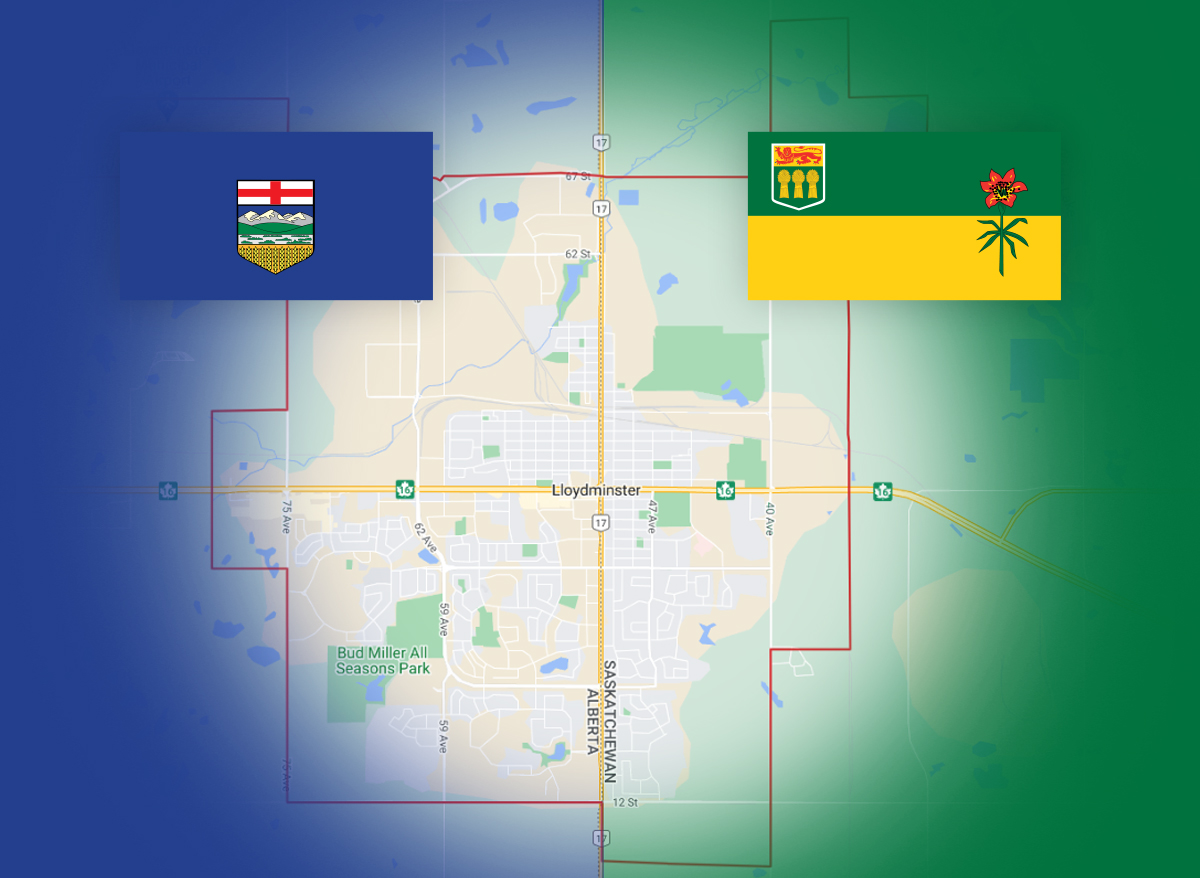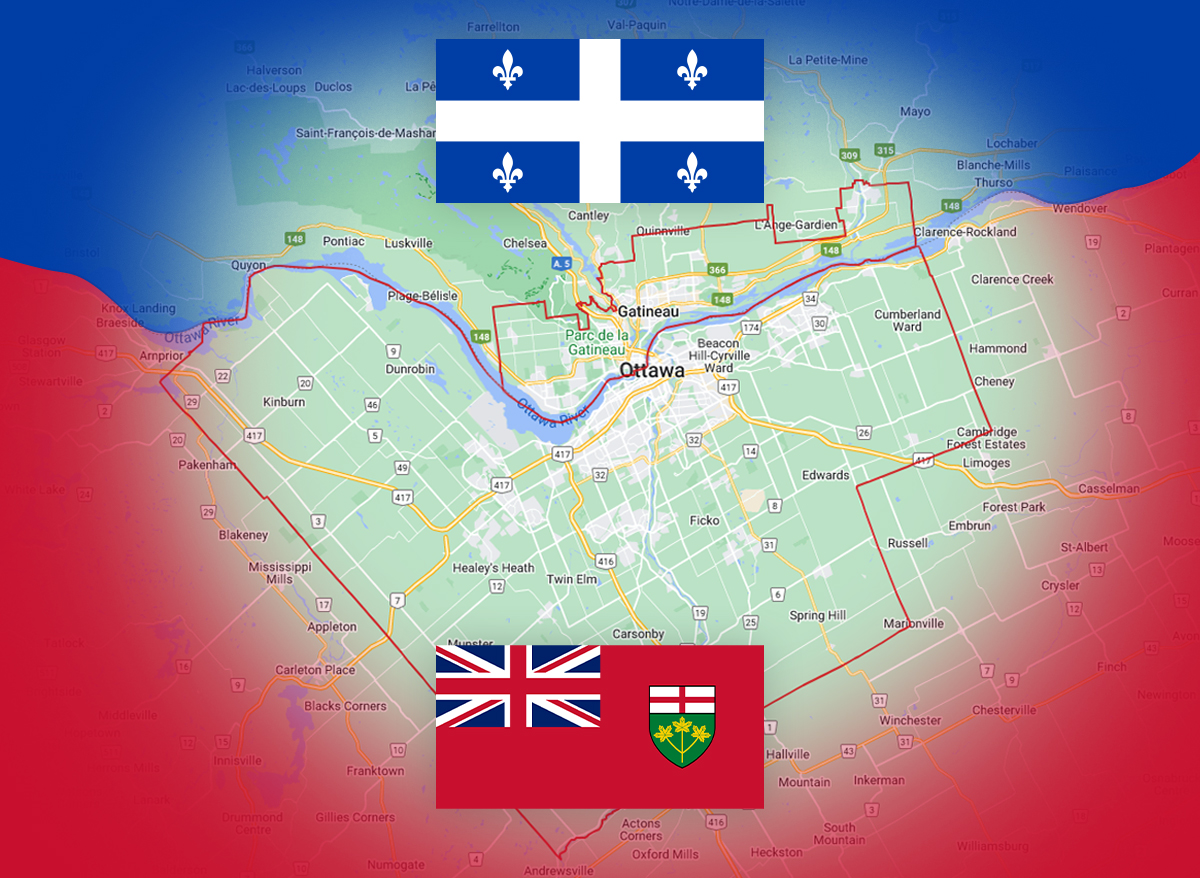Selling Real Estate Next to a Border Brings Unique Set of Challenges

There isn’t a better example of a true border town in Canada than Lloydminster. The line separating Saskatchewan and Alberta literally runs north to south right down the centre of the city. Depending on whom you talk to, the split is either 60/40 or 70/30 in favour of Alberta.
For REALTORS® in Lloydminster, or in any Canadian city that’s close to a provincial border, that presents some rather unique challenges.

The office of Chris Hassall, a REALTOR® and brokerage owner manager with Century 21, is in Saskatchewan, just 100 yards east of the border with Alberta. But 70% of his transactions are in the next-door province. Hassall has licences in both provinces.
In addition to paying fees to have two licences, Hassall has to contend with both provinces licencing requirements and real estate regulations.
There are other differences between the neighouring provinces, most notably taxes. In Hassall’s case there is PST in Saskatchewan but not in Alberta. “We are PST exempt,” he says. “You can’t have PST in one third of your city and not in two thirds.”
REALTORS® working near a border should also be able to help clients understand the medical and insurance differences they need be aware of—or know where their clients can find the resources they need to educate themselves—as well as differences in real estate values in two different markets. Paperwork can vary in various jurisdictions.
The legal fee to register a new house in Saskatchewan is 30% to 40% more compared than in Alberta, Hassall adds. Neither Saskatchewan nor Alberta has a land transfer tax, whereas other provinces, like Ontario, do. If you’re working in a border town, your clients will likely ask you questions about both provinces. It’s worth brushing up on regulations in both provinces so you have a general understanding, even though you may need to refer your clients to a professional licenced in the other.
Scott Musgrave, a broker with Royal LePage in Lloydminster, says the region is quite unique to operate in. For instance, Lloydminster has two small towns close by—Kitscoty, Alberta and Marshall, Saskatchewan. A foreign buyer can purchase a property in Kitscoty, but they cannot in Marshall.
The Canada Mortgage and Housing Corporation (CMHC) has developed a new tool that can help REALTORS® determine if a property could be subject to the Prohibition on the Purchase of Residential Property by Non-Canadians Act (i.e. Foreign Buyer Ban). By entering the exact address of a property, or manually clicking through the map within the tool, users will be able to determine if a property is in a Census Metropolitan Area (CMA) or a Census Agglomeration (CA). If a property is outside of a CMA or CA, it’s excluded from the Act. Access the census tool.
“Nowhere else in Canada has what we have [in Lloydminster],” says Hassall, who has been a REALTOR® for 29 years.
Vern McClelland, an associate broker with RE/MAX of Lloydminster who has represented more than 4,000 listings in the past 20 years, agrees.
“Life on the edge is simply accepted here. Our clients go back and forth between provinces. We can be selling a condo for them on one side and helping them buy a house on the other. The same applies to commercial, recreational, or agricultural properties,” said McClelland.
The region’s real estate board, REALTORS® Association of Lloydminster & District (RALD), has a bylaw in place that states any REALTOR® member registered with a brokerage in the city has to maintain real estate licences in both provinces, says Michael Dewing, a broker with RE/MAX of Lloydminster.
“Although there are some small differences between the two provinces, we try our hardest to run our practices the same in the city,” he says. “We actually have a unique set of real estate forms specific to our area that includes all the mandatory clauses in both provinces, so we use a standard form on both sides of the border. That way, if a client is selling in one province and buying in the other, or a buyer client is looking on both sides of the city, which is pretty common, we eliminate any confusion moving forward with one set of transaction forms.”
In Canada, the practice of real estate is provincially regulated. REALTORS® must be registered in all provinces in which they wish to trade in real estate. This means that a REALTOR® cannot handle any transactions or assist clients with properties located outside the jurisdiction of the REALTOR®, even if the property is simply on the other side of the border.
Jack Uppal, a broker with Royal LePage in Ottawa, says he refers business—around three to six deals a year—to other REALTORS® who are licensed in Quebec. Not only is the language in the province different but “Quebec has a different set of rules, the laws and registration process for REALTORS® are different,” Uppal says.

He says it’s also important to keep an eye on different sales cycles.
“The first thing to keep in mind is that if there is a home that they need to sell in another province, enough time must be given to sell based on the cycle there before committing to another purchase,” he says. “Buyer due diligence periods also may vary between provinces. One of the biggest issues is with condominium purchasers. Coordination of moving-in dates or booking of the elevators with the condo corporation is always forgotten. REALTORS® who sell condo units must keep this as a part of their buyer-closing arrangements.”
Hassall says the intricacies of operating close to provincial borders are why buyers and sellers need a professional REALTOR® by their side.
“You need professionals around you who can give you good advice and get you in touch with people who can give you good advice,” he says. “Real estate agents are just another arrow in your quiver of professionals that you’re going to need for the rest of your life. That’s how I see our industry—we are trusted professionals.”
Our friends at REALTOR.ca Living Room recently looked at the professionals sellers will need when selling their home. You can’t be an expert at everything, so it may be helpful to have a list of reliable contacts at the ready to share with clients. If you don’t already have a relationship with these professionals, look into networking events in your area where you will have a change to connect. If you choose to refer your client to another professional service provider, provide options so they can independently choose one. Be sure you also disclose the nature of your referral relationship, doing your best to avoid any conflict of interests, and be sure to look into any referral guidelines or rules in your province/territory or policies at your brokerage.





